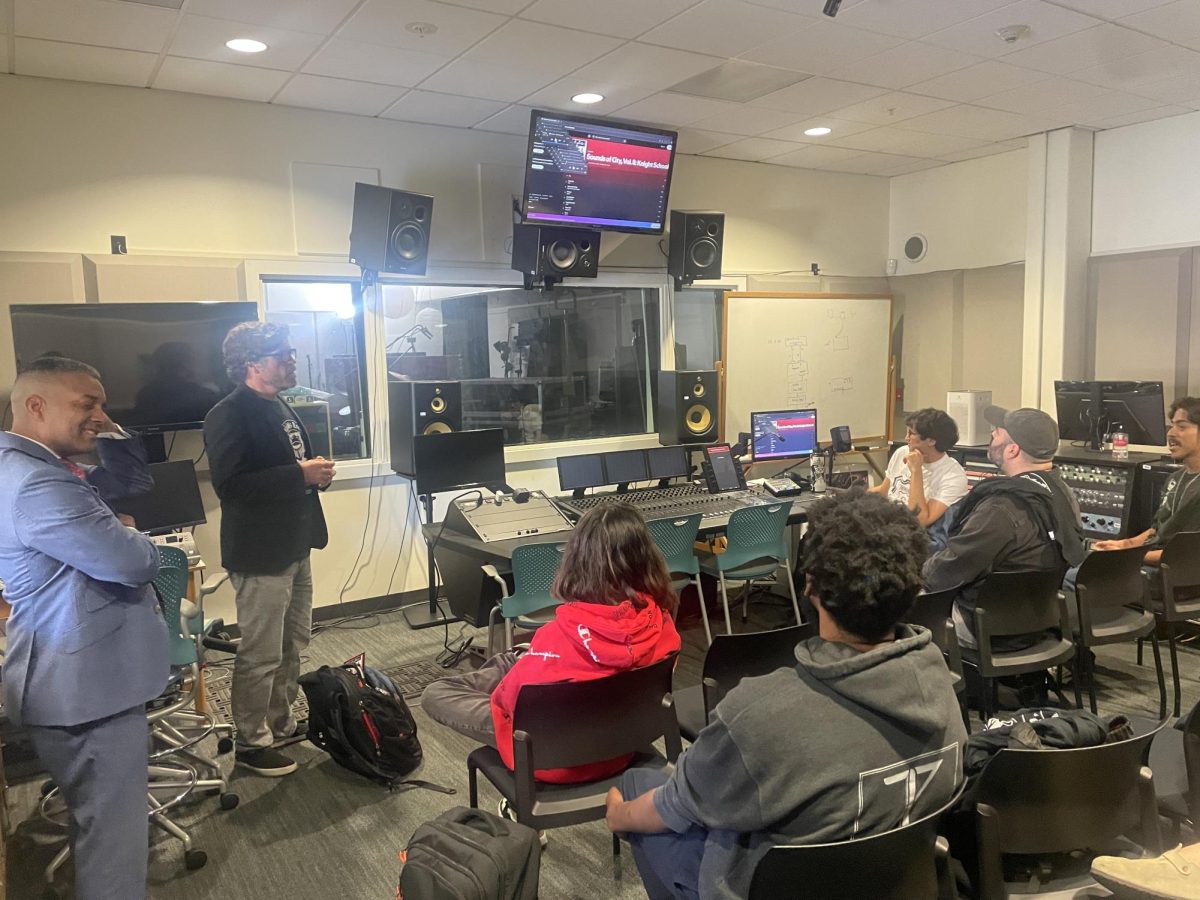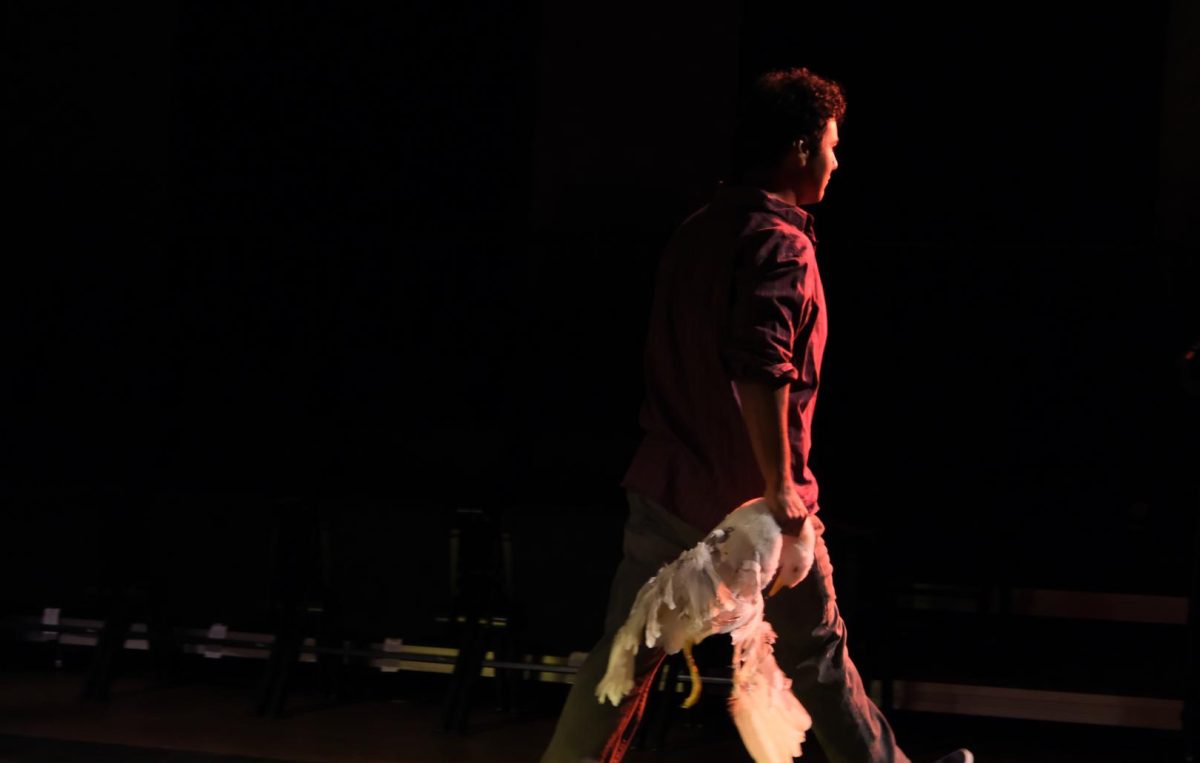Virtuoso pianist John Mark Harris delivered an impressive solo recital for early-bird students at 9:30 in the morning on April 13.
Harris, a professor at City College, holds degrees from UCSD and the New England Conservatory of Music. He has performed to international acclaim as a soloist at the Salzburg and Donaueschingen Festivals with the Southwest German Symphony.
Harris is known for his eclectic aesthetic, which draws on works from the Renaissance to 20th-century maverick composers like John Cage and Iannis Xenakis.
For his early matinee performance, the pianist assembled a diverse program from mostly non-European composers such as Brazilian Heiter Villa-Lobos, ragtime pioneer Scott Joplin and Armenian Aram Khatchaturian.
Harris’ recital began softly with his ruminative interpretation of four short works by Villa-Lobos. The pieces were all under two minutes in length, perhaps an attempt to circumvent the audience’s “no-fly-zone” attention span at that hour of the morning.
Next up was Harris’ fascinating take on two Scott Joplin pieces, “Magnetic Rag” and “Stop Time Rag.”
The first piece was performed with a curious legato feeling throughout its surprisingly expansive melody. There were three distinctive themes at work and Harris’ reading only served to prove what an original thinker Joplin was.
“Stop Time Rag” was more archetypal Joplin and actually required Harris to regularly stomp out quarter-notes with his right foot while hammering out the highly syncopated melody with a florid alacrity.
Harris followed the Joplin songs with four short compositions by Khatchaturian.
Harris exploited the dynamic range of the grand piano in the acoustically pristine Saville Theatre throughout the recital, introducing the first song, “Adventures of Yvonne,” by focusing on the delicate beauty of its melody with a suspended sense of grace.
“Yvonne Can’t Go Out To Play” posited a considerably darker mood, complete with moody arpeggios and enigmatic voicing. Then “Yvonne and Natasha” took things a step further with hammered, dramatic chord sequences filled with increasingly dissonant harmonies.
The final piece by the Armenian composer, “Tales Of A Strange Land,” began with left-hand rumblings, eventually yielding to a joyous Middle-Eastern theme.
With a wise sense of programming, Harris saved the best for last with two pieces by the Russian composer Rachmaninoff.
The first featured rolling arpeggios against a crystalline melody and built to a state of beauty that was offset by a sense of drama. Halfway through the piece, Harris’ right hand trilling opened up to progressively more atonal dramatics, which ended without resolution.
The final composition really allowed Harris to shine as a master of modern piano. This tour-de-force opened with ominous bass declarations and a descending stair-step melody which began slowly ratcheting up the tension in a way that could not be denied.
Suddenly, both of the pianist’s hands erupted into furious hammering, building a reverberant storm cloud that hung in the air despite the violent, stabbing chords that sought to displace it.
Gradually, Harris drew down the dynamics to elicit swells of unresolved harmonic questions that only silence could answer — followed by tumultuous, well-deserved applause.







